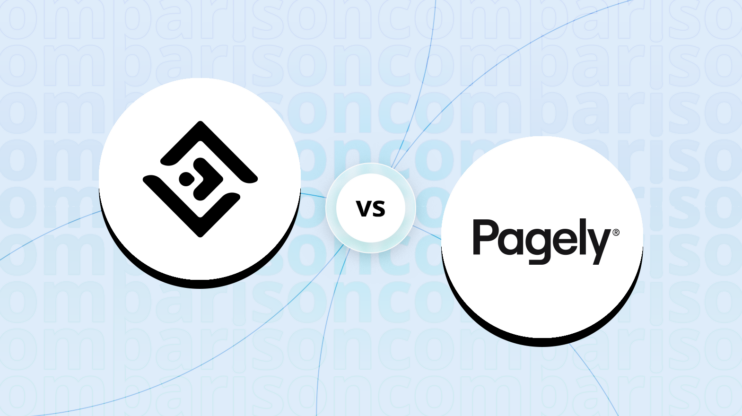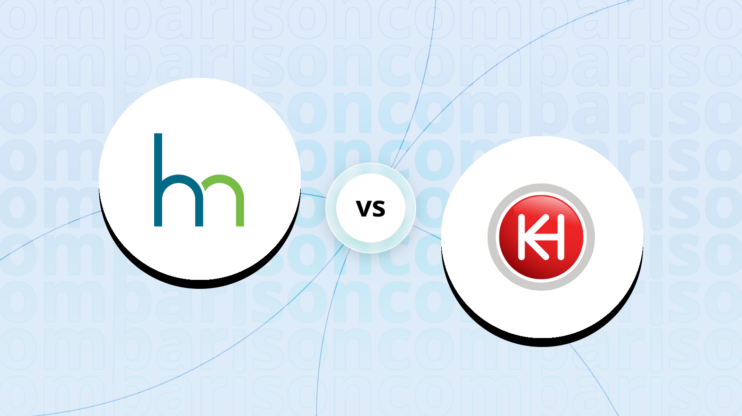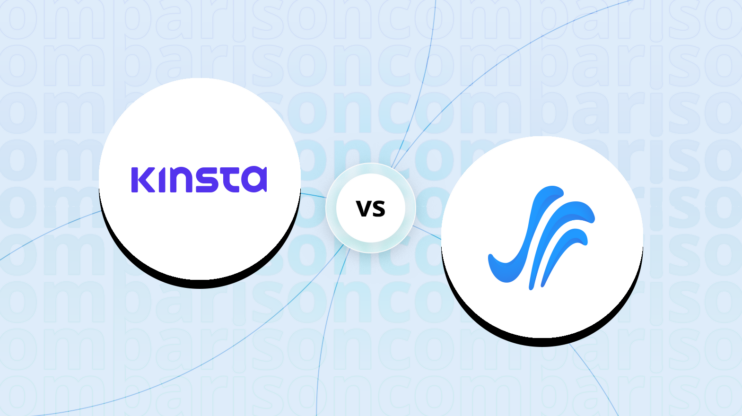Namecheap vs WestHost: Final verdict
Looking over Namecheap vs. Westhost, it’s clear why both hosts are so popular. They have both hosted millions of
websites that run on WordPress for decades, building up a loyal customer base.
-
Westhost (Overall grade: 7.8)
offers high-performance cloud hosting, extensive ecommerce features, and impressive uptime with a 99.995% SLA. Its emphasis on redundancy, security, and global data centers makes it a competitive option for high-traffic websites and users requiring robust security measures. However, its speed performance is average compared to peers, and the lack of a user-friendly cPanel layout can be a drawback for beginner users. Despite these limitations, Westhost’s comprehensive hosting packages and user management features ensure a scalable and secure hosting environment.
Namecheap (Overall grade: 7.2)
excels with its 100% uptime guarantee and near-perfect average uptime of 99.96%, making it a reliable choice for a wide range of hosting needs. Its strong suite of security features, affordable pricing, and eco-friendly data centers add significant value. The inclusion of a user-friendly EasyWP Dashboard and extensive customer support options enhance overall usability. Nevertheless, some users report slow loading speeds on shared hosting plans and find the interface complex. Despite these issues, Namecheap’s affordability and comprehensive feature set make it a formidable competitor in the hosting market.
 Overall grade:7.2 |
 Overall grade:7.8 |
|
|---|---|---|
| Uptime and Availability | 8.0 | 7.8 |
| Hosting Performance | 8.2 | 8.3 |
| Hosting Security | 8.5 | 8.0 |
| Price | 8.7 | 8.5 |
| Hosting Features | 7.5 | 6.5 |
| Ease Of Setup | 8.8 | 8.2 |
| User Management | 0.0 | 7.2 |
| Customer Support | 8.0 | 7.7 |
| User feedback | 4.3/5 | 3/5 |
Hosting types offered
Both platforms provide a variety of hosting types, each designed to meet the different needs of users.
 |
 |
|
|---|---|---|
| Shared hosting | ||
| Cloud hosting | ||
| WordPress hosting | ||
| Ecommerce hosting | ||
| VPS hosting | ||
| Dedicated hosting |
Although both offer a variety of hosting plans tailored to different needs, in
certain cases, one platform may prove to be more suitable.
Detailed comparison
Uptime and availability
Evaluates the average uptime statistics, uptime guarantee and overall availability of the hosting
provider
Score Components:
- Uptime percentage (30%): evaluates the uptime statistics in given period of time
- Uptime guarantee (20%): Assesses if the platform offers an uptime guarantee and
whether the actual uptime matches the promised guarantee. - General performance (25%): Evaluates how fast is the average response time and overall
it’s stability. - Responsiveness (10%): Adaptability to different devices and screen sizes.
- Availability (25%): Reflects the total downtime and number of outages.
 8.0
8.0
 7.8
7.8
🏆 Winner Namecheap: Outstanding uptime guarantees and actual performance make Namecheap a reliable choice for hosting.

Namecheap stands out with its 100% uptime guarantee for shared, business, and dedicated servers, and a near-perfect average uptime of 99.96%. Even during specific testing phases, its downtime was minimal, showing only 31 minutes over 16 outages. The response times were generally below the market average, though some regional variations existed. Compensation for downtime shows commitment to customer satisfaction.

WestHost had a solid uptime performance during a one-month monitoring period with 100% uptime and merely 13 minutes of downtime. While not offering an explicit uptime guarantee, their global data centers are focused on redundancy and security. Speed performance was average, yet the 99.995% SLA and emphasis on security make it a competitive option. The notable differences are uptime guarantees and response times where Namecheap leads.
Which one has better hosting performance?
Score Components:
- Hosting speed (30%): This includes SSD quality, Load times, PageSpeed score ranges,
additional information on website speed, built-in plugins for performance enhancement, available caching
methods, and CPU/RAM options - CDN (20%): Considers whether CDN is available or not, whether it’s free or paid, and
the quality of the CDN service - Available data centers (30%): Evaluates the number of data centers and their locations
globally. - Scalibility (20%): Looks at whether elastic scaling is available, the process required
to scale (manual upgrade vs. automatic scaling), the presence of dedicated servers, and the costs
associated with scaling.
 8.2
8.2
 8.3
8.3
🏆 Winner
Westhost: Offers exceptional uptime guarantee and comprehensive security features.
When comparing general performance, both Namecheap and Westhost deliver solid service, but Westhost edges out with its 99.995% uptime guarantee, surpassing Namecheap’s 99.9%. In terms of speed, both providers offer SSD storage, but Westhost incorporates gigabit port speeds and solid state drives for instant read/write commands, enhancing performance. Namecheap offers a significant performance boost for WordPress hosting, along with free CDN and SSL certificates. Both providers have multiple datacenters across various locations. Namecheap excels with its eco-friendly EU datacenter powered by renewable energy.
Website Speed
Westhost offers lightning-fast VPS cloud hosting with SSDs, managed through an intuitive control panel, ensuring quick deployment and reliable speed. Namecheap’s WordPress hosting claims to be three times faster than traditional hosting, with a fully loaded time of 0.7 seconds and Time to First Byte at 192 milliseconds. Both offer competitive website performance, but Namecheap’s specific metrics for WordPress make it a strong contender for speed-focused users.
Scalability
Regarding scalability, Namecheap provides various hosting plans, including shared, reseller, VPS, and WordPress hosting, giving users several upgrade paths. Namecheap also mentions its offerings of up to 8-core CPUs and 12 GB RAM on their VPS plans, although it’s unclear if scaling happens automatically. Westhost also offers a range of packages, including VPS hosting and comprehensive features like intelligent control panels and flexible OS options. However, specific details on automatic scaling or dedicated servers aren’t provided for either host.
Both providers offer valuable features, but with Westhost’s superior uptime and strong security measures, it takes the slight edge in this comparison.
Which one has better security features?
and regulatory requirements
Score Components:
- Technical security measures (40%): This includes encryption, firewalls, DDoS
protection, secure configurations, server monitoring, access control and availability of security addons
(e.g Sitelock security). - Operational security measures (30%): Encompasses data privacy, backups and data
redundancy. - Compliance and certifications (20%): Adherence to legal and regulatory requirements
(e.g., GDPR, HIPAA) and possession of certifications (e.g., ISO 27001, SOC 2). - Business and reliability (10%): Factors in the provider’s reputation, uptime
guarantees, and customer support.
 8.5
8.5
 8.0
8.0
🏆 Winner Namecheap: A well-rounded provider with an array of security features.
Both Namecheap and Westhost, have notable differences in their approaches to technical and operational
security, as well as in their compliance with regulations.
Technical security measures:
Namecheap and Westhost both offer important technical security measures, but Namecheap stands out with its diverse range of SSL certificates including DV, OV, and EV, supporting specific needs for different websites. Westhost provides unlimited free SSL certificates, but mainly focuses on Let’s Encrypt options. Namecheap supports PHP versions from 5.x to 8.x, while Westhost supports from 5.3 to 8.2. Both providers offer SSH access, though Namecheap’s “Jailed” access adds an additional layer of security. With added features like Hotlink Protection, IP Deny Manager, and virus scanning through ClamAV™, Namecheap provides more specialized tools for safeguarding websites.
Operational security measures:
Namecheap excels in operational security with its two-factor authentication (2FA) and complete domain privacy, which ensures the contact details of domain owners remain confidential. It also introduces advanced email security solutions like Jellyfish Spam Protection and PGP/GPG email encryption. Westhost, on the other hand, includes tools like SiteLock for malware protection and FTPS to secure FTP access. Their managed security clean-up services offer hands-on relief during security breaches, albeit for an additional fee. Both providers guarantee 24/7 support, but Namecheap’s premiumDNS and FastVPN services add extra layers of security and privacy.
Compliance and certifications:
When it comes to compliance, Namecheap provides robust GDPR offerings, including comprehensive user rights like access, rectification, and the right to be forgotten. Westhost aligns with the EU – U.S. Privacy Shield Framework for GDPR compliance, though it leaves the burden on customers to ensure compliance with local laws. Namecheap discusses PCI compliance indirectly but provides a suite of features to help meet these standards; Westhost does not specify PCI compliance measures.
 |
 |
|
|---|---|---|
SSL certificate |
Multiple types including DV, OV, EV. |
Unlimited free SSL through Let’s Encrypt. |
Additional security features |
Jellyfish Spam Protection, FastVPN, etc. |
SiteLock, Managed Security Clean-Up. |
PHP versions |
5.x to 8.x |
5.3 to 8.2 |
GDPR compliance |
Yes, detailed user rights |
Yes, Privacy Shield certification |
HIPAA compliance |
Not specified |
Not specified |
PCI compliance |
Not specified |
Not specified |
Hosting features
Score Components:
- Domains (20%): Assesses the availability of a free domain, domain purchase options, and
pricing - Email (15%): Considers if the provider offers full email hosting, or is reselling
third-party service, and if the email is only transactional or not - Website builder (15%): Checks if website builder is available, and it’s user
friendliness and overall the level of customization allowed. - Staging environment (20%): Determines if a staging environment is available, allowing
for testing changes before going live. - FTP & SFTP accounts (10%): Evaluates if and how easily users can access FTP and
SFTP accounts - Git and SSH access (20%): Assess whether Git is integrated into the hosting service and
if SSH access is provided
 7.5
7.5
 6.5
6.5
Winner Namecheap: Comprehensive features, strong security, and user-friendly plans make Namecheap a standout choice.
When comparing Namecheap and Westhost, the standout feature for Namecheap is its inclusion of a website builder on all shared hosting plans, which caters to users looking for ease of use and more complex customization capabilities. Conversely, Westhost is recognized for its simple yet effective user-friendly control panel (StackCP) and easy application installer that includes popular tools like WordPress, Magento, and Joomla. Both offer competitive pricing, but Namecheap’s introductory rates are slightly lower than Westhost’s. Namecheap’s inclusion of a free Supersonic CDN and multiple datacenter locations offer added value and global reach.
Unique selling points for each provider also play a pivotal role in helping users decide. Namecheap’s plans come with free SSL certificates for the first year across all plans, extensive support options including 24/7 live chat, and a robust range of email features. Westhost, in contrast, offers unlimited free automatic SSL certificates, unlimited domains, and full SSH access, which stands out to more advanced users needing a bit more control and flexibility. Both provide free migration, but Namecheap’s 100% uptime guarantee for cloud storage is a crucial factor for those requiring high resilience and stability.
 |
 |
|
|---|---|---|
Free domain |
No |
Yes, with annual plan |
Free SSL |
Yes, first year |
Yes |
Email hosting |
Yes |
Yes |
Website builder |
Yes |
No |
Staging environment |
No |
No |
FTP & SFTP accounts |
Yes |
Yes |
Git and SSH access |
No |
Yes |
Free backup |
Yes |
Yes |
Money back guarantee |
30 days |
30 days |
a location.
As a result in rare cases the features mentioned here can differ from the ones you see on their websites.
Both providers support a range of users from beginners to experts with user-friendly website builders and WordPress staging areas. However, in terms of developer tools, both Namecheap and Westhost offer robust options including SSH access, support for multiple programming languages, and Git for version control, thus appealing to developers looking for advanced capabilities.
Email services:
Namecheap offers comprehensive email hosting with robust features such as Jellyfish Spam Protection, domain-based email addresses, and unlimited email accounts on most plans. In contrast, Westhost provides personalized mailboxes with a user-friendly webmail interface, as well as auto-responders and spam protection, but lacks some of the advanced email management features like Jellyfish Spam Protection. Both hosts provide essential functionalities for transactional emails, but Namecheap’s more extensive email services can be particularly advantageous for users requiring in-depth control and management of their email campaigns.
Price
Score Components:
- Plan value (40%): What each pricing tier offers.
- Transparency and clarity (30%): Clearness of pricing structures.
- Flexibility of plans (20%): Range of options to suit different budgets.
- Hidden costs (10%): Additional expenses not included in the plan.
 8.7
8.7
 8.5
8.5
🏆 Winner Namecheap: Offers a variety of affordable and feature-rich hosting plans.
Evaluating the pricing of plans among various hosting providers can be complex due to their differing pricing and renewal strategies. Additionally, certain plans require annual commitments, which adds to the difficulty of making comparisons. The prices listed are based on monthly commitments; plans requiring annual commitments are indicated. Additionally, although some providers offer identical plans for WordPress and shared hosting, we have created separate tables for each to enhance clarity.
When comparing Namecheap and Westhost, Namecheap has more competitively priced options with extensive features. For instance, Namecheap’s shared hosting starts at an introductory price of $1.98/month, while Westhost’s starts at $3.75/month. Namecheap also includes more freebies across its plans like free domains, SSL certificates, and CDN services. In managed WordPress hosting, Namecheap has a more robust feature set for lower initial prices. However, Westhost offers more email storage and higher attachment limits in their email hosting plans. Both providers offer reliable customer support and user-friendly management interfaces.

|

|
|---|---|
|
EasyWP Starter$6.88
1 WordPress website, 10 GB SSD, 50k visitors/month, free CDN, free SSL, easy backups and restores, 99.9% uptime. Value for price:8.5
|
N/A |
|
EasyWP Turbo$12.88
1 WordPress website, 50 GB SSD, 200k visitors/month, 1.5x more CPU and RAM, free CDN, free SSL, easy backups and restores, 99.9% uptime. Value for price:9.0
|
N/A |
|
EasyWP Supersonic$19.88
1 WordPress website, 100 GB SSD, 500k visitors/month, 2x more CPU and RAM, free CDN, free SSL, easy backups and restores, 99.99% uptime. Value for price:9.5
|
N/A |

|

|
|---|---|
|
Stellar$4.48
3 websites, 20 GB SSD, 30 mailboxes, free domain for the first year, free SSL, free CDN, free website migration, 30-day money-back guarantee. Value for price:8.0
|
Essential$5.00
1 website, 25GB storage, free domain, 1 x 10GB mailbox, unmetered bandwidth, unlimited SSL, 80+ apps, backups. Value for price:7.5
|
|
Stellar Plus$6.48
Unlimited websites, unmetered SSD, unlimited mailboxes, free domain for the first year, free SSL, free CDN, free website migration, 30-day money-back guarantee. Value for price:9.0
|
Personal$12.00
10 websites, 50GB storage, free domain, 10 x 10GB mailboxes, unmetered bandwidth, unlimited SSL, 80+ apps, CDN, backups. Value for price:8.0
|
|
Stellar Business$9.48
Unlimited websites, 50 GB SSD, unlimited mailboxes, free domain for the first year, free SSL, free CDN, free website migration, 30-day money-back guarantee. Value for price:9.5
|
Professional$16.00
25 websites, 75GB storage, free domain, 25 x 10GB mailboxes, unmetered bandwidth, unlimited SSL, 80+ apps, CDN, backups. Value for price:8.5
|
| N/A |
Premier$22.00
Unlimited websites, 150GB storage, free domain, 50 x 10GB mailboxes, unmetered bandwidth, unlimited SSL, 80+ apps, CDN, backups, SiteLock, DV SSL. Value for price:9.0
|

|

|
|---|---|
| N/A |
VPS1GB$8.00
1GB RAM, 25GB SSD, 3TB bandwidth, 4 core. Value for price:7.0
|
|
Basic Dedicated Server$44.88
Customizable configurations, full root access, 24/7 support, 7-day money-back guarantee, various OS options, 200 GB backup storage. Value for price:7.5
|
VPS2GB$16.00
2GB RAM, 50GB SSD, 4TB bandwidth, 4 core. Value for price:8.0
|
|
Advanced Dedicated ServerCustom Pricing
High-traffic support, full root access, customizable configurations, 24/7 support, 7-day money-back guarantee, various OS options, 500 GB backup storage. Value for price:8.5
|
VPS4GB$32.00
4GB RAM, 100GB SSD, 6TB bandwidth, 4 core. Value for price:8.5
|
| N/A |
VPS8GB$64.00
8GB RAM, 200GB SSD, 8TB bandwidth, 4 core. Value for price:9.0
|
| N/A |
VPS16GB$128.00
16GB RAM, 400GB SSD, 8TB bandwidth, 4 core. Value for price:9.5
|
Enterprise plans
For enterprise needs, Namecheap provides robust dedicated server options with customizable configurations and comprehensive support, ideal for high-traffic websites and data-intensive applications. Westhost offers competitive VPS hosting with scalable resources, making it suitable for growing businesses that require more control and flexibility. Both options deliver value, but Namecheap stands out with its feature-rich dedicated server offerings and 24/7 support.
Namecheap vs WestHost: Ease of setup
platform.
Score Components:
- Site migration (25%): Assesses whether the provider offers tools for site migration,
either automated or manual, and whether these services are free or require a fee. - Admin panel usability (35%): Evaluates the type of admin panel provided, such as the
standard cPanel or a custom solution, focusing on its accessibility and user-friendliness for both
technical and non-technical users. - Setup features (20%): Examines the availability and ease of use of various setup
features, including FTP accounts, file managers, email account setup, PHPMyAdmin, and easy CDN
configuration. - Help center quality (20%): Measures the quality and accessibility of the provider’s
help center resources, including articles and tutorials.
 8.8
8.8
 8.2
8.2
🏆 Winner Namecheap: A holistic hosting solution with instant setup and customized dashboard.
Namecheap utilizes the EasyWP Dashboard, a unique admin panel streamlined for ease of use, particularly suited for managing WordPress sites. Unlike the typical cPanel, EasyWP offers a single, customized dashboard that makes website management straightforward for both technical and non-technical users. Its layout allows users to manage domains, backups, and maintenance settings effortlessly. Softaculous adds a layer of convenience, enabling one-click installations for over 200 applications. Namecheap’s choice to veer away from traditional cPanel and provide a user-friendly, task-centric interface can be particularly advantageous for those who prefer an uncomplicated approach.
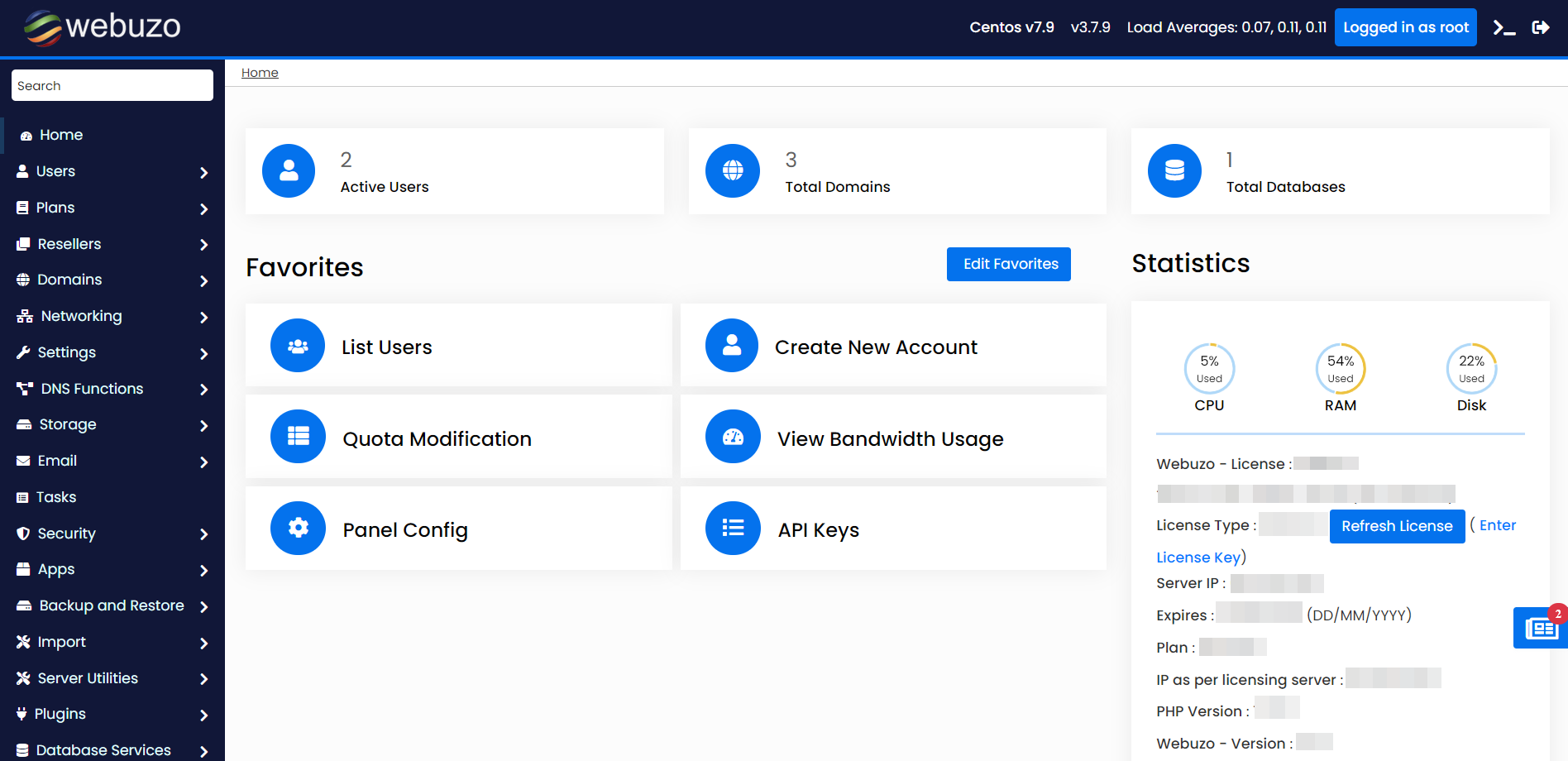
WestHost, on the other hand, relies on the more traditional cPanel interface, known for its extensive functionality. cPanel is a venerable choice, offering robust features that cater to users familiar with web hosting intricacies. For less technically inclined users, WestHost’s website builder provides an intuitive, hassle-free way to create and manage websites. This combination of standard cPanel and a user-friendly website builder caters to a broad range of user needs, from beginners to experienced web admins. While the array of features in cPanel might feel overwhelming to some, experienced users will appreciate the comprehensive control and options it offers.

Both hosting providers offer free site migration services, enhancing accessibility for those looking to switch hosts. Namecheap provides a free migration using the All-in-One WP Migration plugin and covers a wide range of prior hosts, ensuring flexibility and ease. WestHost also includes a Migration Center in its knowledge base, outlining steps for a hassle-free transition. Both providers facilitate migrations without additional costs, allowing users to decide based on their specific needs and previous hosting experience.
The platforms provide extensive knowledge bases filled with guides, how-to articles, and instructional content. Namecheap’s help center is extensive, supported by 24/7 live chat, a help desk, and a detailed Knowledgebase covering setup guides, troubleshooting, and more. The support team is readily available to assist with issues, adding to the overall user experience. WestHost’s knowledge base is similarly comprehensive, detailing various aspects such as domain management, WordPress tools, and account troubleshooting. Their 24/7 technical support via live chat and ticket system ensures users get timely help when required.
User management
accessibility.
Score Components:
- Role customization (40%): Flexibility in creating and defining user roles and
permissions. - Ease of management (30%): User interface and tools for managing users.
- Access control (20%): Effectiveness of access control measures for different user
levels. - Scalability (10%): Ability to manage a growing number of users efficiently.
 0.0
0.0
 7.2
7.2
🏆 Winner WestHost: WestHost offers comprehensive user management features ideal for growing websites.
When comparing the user management features of Namecheap and WestHost, WestHost clearly stands out. While the specifics of Namecheap’s user management capabilities are not detailed, WestHost’s extensive system allows the creation of various user accounts with specific roles, permissions, and accessibility options. WestHost users can establish tailored e-mail and FTP user accounts, providing flexibility and control over web space management. This structured approach ensures that each user has only the necessary access, enhancing security and operational efficiency.
WestHost’s user interface for managing users in Site Manager is well-documented and user-friendly. Users can easily add, delete, and edit user accounts via straightforward steps, supported by a detailed knowledgebase. The availability of a video tutorial on setting up new e-mail and FTP users further simplifies the process, making user management accessible even to those with minimal technical knowledge.
Access control measures in WestHost are designed to handle a growing number of user accounts effectively. The ability to set quotas and home directory prefixes for FTP accounts provides additional layers of customization and control. Ensuring that users can only access specified directories within the web space reduces the risk of unintentional data exposure. The option to easily remove users and their directories enhances the platform’s adaptability to changing user needs, supporting scalability.
WestHost user roles table:
| Role | Description | Access Highlights |
|---|---|---|
| E-mail User | Individual needing to receive e-mail at your domain. | Can manage e-mail aliases. |
| FTP User | E-mail user with optional FTP access. | Access specific directory in web space. |
Customer support
hosting provider.
Score Components:
- Support communication channels (30%): Measures the variety of customer support types
provided (live chat, chatbot, email, phone, etc.) - Availability (20%): Assesses the availability hours for each channel, including 24/7
support options. - Technical support quality (30%): Assesses whether the provider offers comprehensive
technical support, including hardware upgrades (e.g., HDD to SSD), software installations, and web
server configuration changes. - Enterprise support (20%): Checks if there are dedicated or priority support services
for enterprise-level customers.
 8.0
8.0
 7.7
7.7
🏆 Winner Namecheap: Offers a user-friendly customer service experience with multiple support channels and extensive resources.
 |
 |
|
|---|---|---|
Phone support |
||
Live chat support |
||
Chatbot |
||
Email/ticket support |
||
Enterprise support (dedicated agent, priority support) |
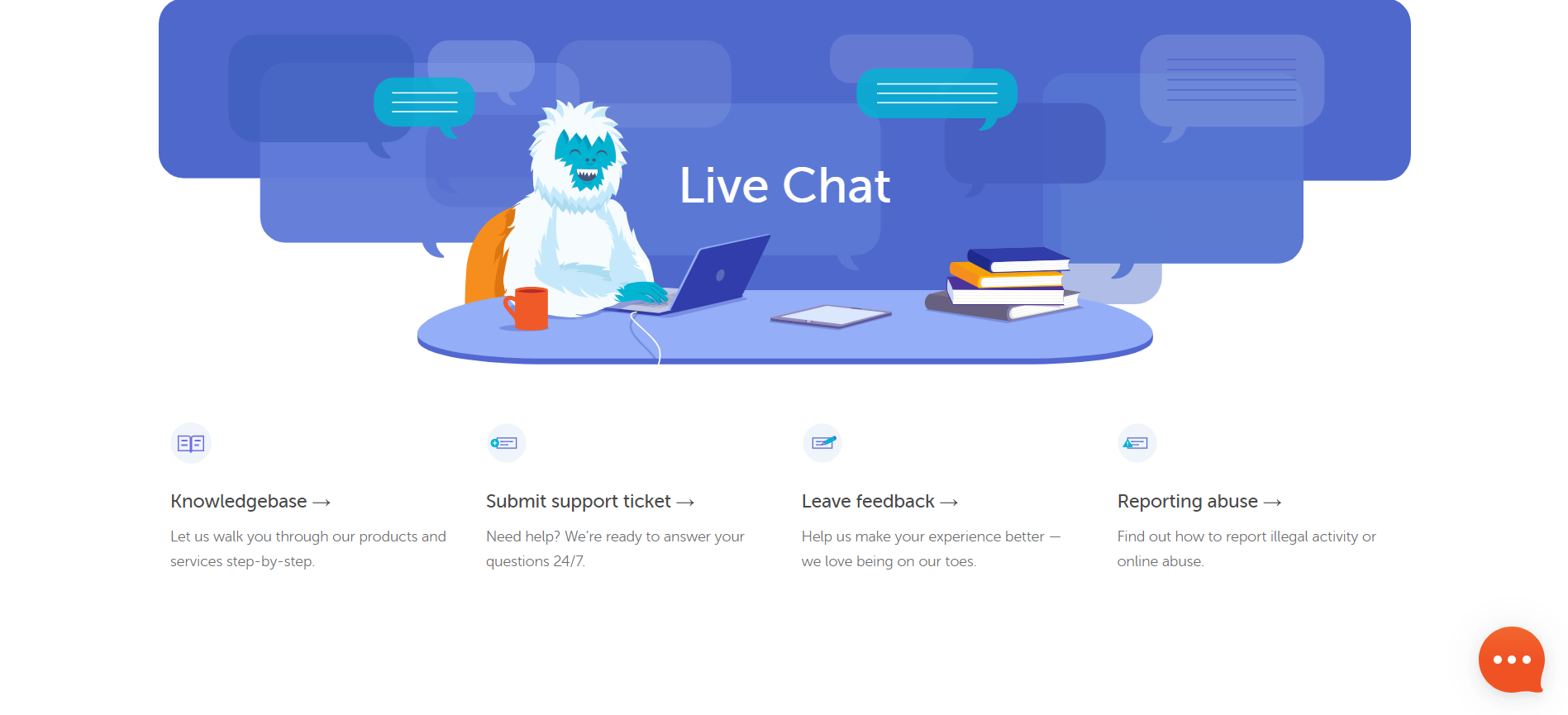
Namecheap’s customer service features include 24/7 live chat and a ticketing system, complemented by a comprehensive knowledge base, how-to videos, and Guru Guides. Users praise Namecheap for its immediate and positive live chat experience, although it lacks phone support. Namecheap also provides free website migration with minimal downtime.

WestHost also boasts 24/7 support through live chat and phone, along with a useful forum and knowledge base. However, reviews indicate mixed experiences, with reports of delayed responses and inconsistent support quality. WestHost offers a good refund policy and telephone support, but some users face delays with complex issues.
Namecheap vs WestHost: User feedback
Namecheap is highly appreciated for its affordability, reliable web hosting, and excellent customer support, available 24/7 via live chat. Users commend the inclusion of free SSL certificates and quality cPanel features, making it ideal for beginners and small to medium-sized businesses. However, some dissatisfaction is noted with the shared hosting plans, which are reported to have slow loading speeds and stability issues. Additionally, there are occasional concerns about the complexity of the user interface and the lack of multilingual support.
Users find WestHost to be a reliable hosting provider with minimal downtime and high-quality support. The competitive pricing is appreciated, but many users express frustration with the outdated documentation and the need for customer support intervention for tasks like updating SSL certificates. While the service itself is smooth and hassle-free, the administrative interface and outdated guides significantly detract from the overall user experience.
Namecheap vs WestHost: FAQ
Are both platforms suitable for beginners?
While both Namecheap and Westhost offer features that can appeal to beginners, Namecheap is generally more user-friendly thanks to its EasyWP Dashboard, which simplifies website management. Westhost’s lack of a user-friendly cPanel layout and reliance on more traditional interfaces may make it slightly less accessible for beginners.
Which hosting service offers better security features?
Namecheap offers a diverse range of SSL certificates and advanced security features like Jellyfish Spam Protection and FastVPN, making it a robust choice for security. Westhost also provides strong security features, including unlimited free SSL certificates and SiteLock for malware protection, but Namecheap’s broader range of specific tools gives it an edge.
What are the major differences in pricing and value between Namecheap and Westhost?
Namecheap offers more competitively priced options with extensive features like free domains, SSL certificates, and CDN services across its plans. Westhost, while offering similar base functionalities, tends to have higher introductory rates, which may make Namecheap a more cost-effective choice for budget-conscious users.
Which service is more suitable for hosting a high-traffic website?
Westhost is particularly suitable for high-traffic websites due to its high-performance cloud hosting and dedicated servers, which include extensive redundancy and security measures. Despite Namecheap’s strong uptime guarantee, Westhost’s performance edge in high-traffic scenarios makes it the better choice.
How do the providers handle email hosting and what features are included?
Namecheap provides comprehensive email hosting with features such as Jellyfish Spam Protection and unlimited email accounts on most plans. Westhost offers personalized mailboxes with spam protection and a user-friendly webmail interface, but lacks some advanced email management features present in Namecheap’s offerings.
The making of this blog
We followed a clear, step-by-step process to write and research this article.









